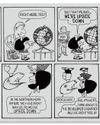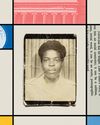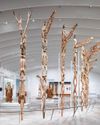Prøve GULL - Gratis
GIG ECONOMY
The New Yorker
|October 28, 2024
The decline of the working musician.

Before the gig economy consumed a third of the workforce, it was mostly musicians who worried about gigs. There are debates about the origins of the word-some believe it derives from an eighteenth-century term for horse-drawn carriages that may have doubled as stages for performers, while others contend that it was adapted from a Baroque dance called the gigue. But the "gig," as shorthand for a casual, oneoff paid performance, entered the popular lexicon during the Jazz Age of the nineteen-twenties and thirties. There was a mystique to the gigging musician wandering the big city in search of work, because this work was creative, improvisational, at times transcendent.
Young people who came of age before the twenty-first century, Franz Nicolay argues in a new book called "Band People: Life and Work in Popular Music," could be forgiven for assuming that working one's way up from gigs to a steady job in music was a plausible career path. You might not make it as a chart-topping star, but there were still opportunities for "band people"the "hired guns" or "side-of-the-stagers" who offered structure and support.
Music was everywhere, and there had to be people to play it. Nicolay's book details the lives of working musicians, especially those far from the spotlight: background vocalists hired for uncredited recording sessions, rhythm guitarists playing on freelance contracts. Not that the spotlight in question shines all that brightly to begin with; most of the dozens of artists Nicolay spoke to work in commercially tenuous realms, such as indie rock or punk, in which a band like Sonic Youth represents the imagination's zenith.
Denne historien er fra October 28, 2024-utgaven av The New Yorker.
Abonner på Magzter GOLD for å få tilgang til tusenvis av kuraterte premiumhistorier og over 9000 magasiner og aviser.
Allerede abonnent? Logg på
FLERE HISTORIER FRA The New Yorker

The New Yorker
THE MAGIC OF “MAFALDA”
How an Argentinean comic strip became an international phenomenon.
11 mins
July 07 - 14, 2025 (Double Issue)

The New Yorker
BY THE BOOK
What we learn from reading the fiction touted in our début issue.
13 mins
July 07 - 14, 2025 (Double Issue)

The New Yorker
THE STORY PART
Student days and a search for community.
19 mins
July 07 - 14, 2025 (Double Issue)

The New Yorker
THE SILENCE
A great silence opened up inside her. But that made it sound more dramatic than it was. It happened by degrees, creeping up slyly. And at times, in certain places and situations, it was expected and welcome—on a long walk, or when a person confessed something pitiful, or at a funeral or a party. In all those places, where once she'd had a lot to say—too much, honestly—now there was this silence and she became a far better listener. Not consciously, that was just one of the consequences. It wasn't a Zen silence or an enlightened silence or anything she'd worked to achieve. It was only a sort of blank. Once, on a mini-break, she'd spotted a sentence graffitied on a bridge in Paris: “The world is everything that is the case.” (It was written in English and stuck in her mind.) The silence felt like that: it spoke for itself. But it could also offend and disappoint others, the same way the world itself never seems enough for some people. It was no use on big family occasions, for example, or when one of her adult daughters called her name from another room, or if someone at work asked for her view on the news of the day. It could make other people feel awkward. But when she was alone with it, whenever it coincided with her own long-standing habit of looking upward into the branches of trees—then it didn't really bother her at all.
23 mins
July 07 - 14, 2025 (Double Issue)

The New Yorker
THE COMEDIAN
My father worked nights as the desk attendant at a cheap hotel downtown. It was a thankless job behind bulletproof glass, which was all he had to shield him from demented drunks and screeching prostitutes, from seven in the evening until four in the morning, the poor man.
24 mins
July 07 - 14, 2025 (Double Issue)

The New Yorker
IS IT THE PHONES?
The tantalizing power of the theory that screens are harming teens.
13 mins
July 07 - 14, 2025 (Double Issue)

The New Yorker
THE END OF THE ESSAY
What comes after A.I. has destroyed college writing?
25 mins
July 07 - 14, 2025 (Double Issue)

The New Yorker
EASY MUSIC
How Elmore Leonard perfected his style.
23 mins
July 07 - 14, 2025 (Double Issue)

The New Yorker
JUBILEE
A wooden ruler with the etched faces of Henry VIII's six wives running down the middle; ticket stubs from Hampton Court and the Chamber of Horrors, where we walked ahead of our mothers, hand in hand; a few wrappers of Dairy Milk.
34 mins
July 07 - 14, 2025 (Double Issue)

The New Yorker
PRIDE AND PROVENANCE
The Met's new Rockefeller Wing daxxles—and whispers, “Finders, keepers.”
6 mins
July 07 - 14, 2025 (Double Issue)
